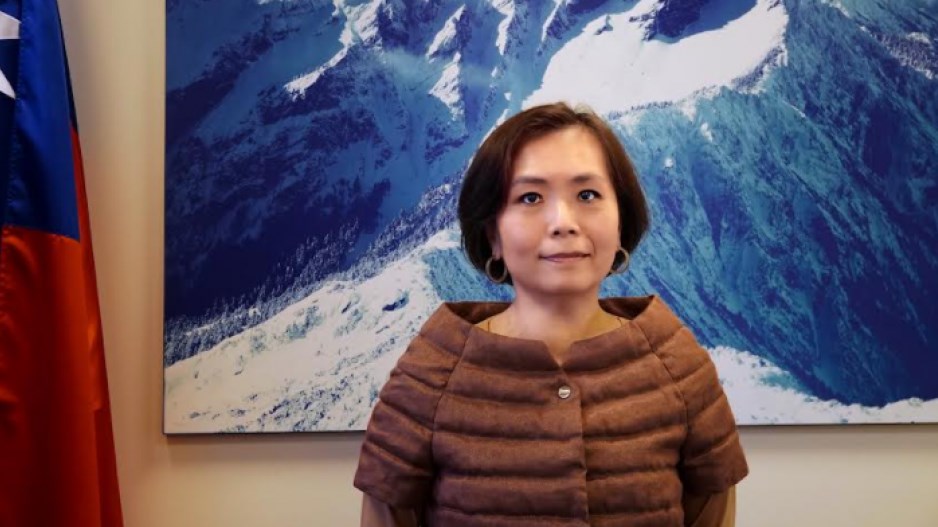Designed to propel the province into the future, the StrongerBC Economic Plan that Premier John Horgan and Minister Ravi Kahlon have just put into action has many good and practical elements. Its inclusivity would encourage B.C.’s multi-ethnic communities to pull together and create a more dynamic workforce, thereby increasing productivity. Its sustainability would inspire more green innovations, setting B.C. and Canada on a clear path to achieve net zero targets.
With the expansion of innovative and environmentally conscious industries, the plan would ultimately transform the province into a hub for smarter living and equitable economic growth. Attracting foreign investment will play a key role towards translating this plan into reality, and Taiwan is well placed to become B.C.’s partner for economic growth.
As B.C.’s 4th and Canada’s 5th largest trading partner in Asia, as well as the leading semiconductor producer in the world, Taiwan is an important strategic and trading ally. In this context, Taiwanese and Canadian trade ministers announced the launch of exploratory discussions on a bilateral Foreign Investment Promotion and Protection Arrangement (FIPA) in January, and more formal talks are expected to follow in the coming months.
The FIPA is important for both countries because not only does it ensure a higher standard of protection for foreign investment, it provides an avenue for both sides to deepen exchanges in the green energy, innovation and startup sectors, and opens more doors for cooperation in other fields. From closing the digital divide, entrenching a comprehensive healthcare system to promoting gender equality and advancing opportunities for indigenous peoples, there is much for leaders and innovators in B.C. and Taiwan to work on together.
The FIPA also integrates high-standard trade practices that are currently being used by the Comprehensive and Progressive Agreement for Trans-Pacific Partnership (CPTPP), the 11-member multilateral trade agreement encompassing the Asia Pacific, of which Canada is a leading member. More countries like Taiwan are interested in becoming a member of this trade pact. Supporting Taiwan's quest to join the CPTPP will drive more investment and export opportunities for Canada and provide new possibilities for B.C. firms.
Cooperation between both sides will lead to more technological innovations. Fintech cooperation between Taiwan and Canada has risen to new levels following a bilateral fintech agreement in 2018 that applies to all Canadian jurisdictions, including B.C. Both Taiwanese and British Columbian policymakers have rolled out a series of programs to provide support for startups. Going forward, both sides can also leverage their human capital towards greater advancements in fintech, IoT, AI, digital health, ICT, automotive technology, smart manufacturing, smart transportation and smart agriculture. The Taiwan Tech Arena (TTA) has resources available to enable startups around the world to commercialize their innovations.
The presence of Taiwan’s large scale cargo providers in the Port of Vancouver and the Vancouver International Airport further demonstrates that Taiwan will continue to play an important role in ensuring supply chain resilience for British Columbia and Canada.
With a common objective of reaching net zero by 2050, Taiwan and Canada are standing side by side for a greener and sustainable future. There is great potential for a further intersection of B.C.’s hydrogen strategy with Taiwan’s green energy policy.
The great people-to-people ties between Taiwan and British Columbia also provide a basis for greater economic cooperation. Around 45,000 Taiwanese Canadians call British Columbia home, and there are many more young and talented Taiwanese immigrants who are waiting in line to become citizens of this great province. As startup entrepreneurs, teachers, pharmacists, restaurateurs and real estate agents, they look forward to contributing their energy and capabilities for British Columbia and Canada. And they have already shown their dedication and pulled together for B.C.; when the province experienced a serious flooding disaster last November, the Taiwanese community in Greater Vancouver joined hands with the Government of Taiwan to make a combined donation of CAN$110,000 to the Canadian Red Cross so that their fellow citizens across the province can pull through difficult times.
On top of all these, it would be a smart strategy for Trade and Invest BC to consider expanding its operation to Taipei, at minimum cost, that will enable the province to connect with more business opportunities in East and Southeast Asia, following what the neighboring province Alberta has done in the past two decades.
Li-hsin Liu is director-general, Taipei Economic and Cultural Office in Vancouver.




